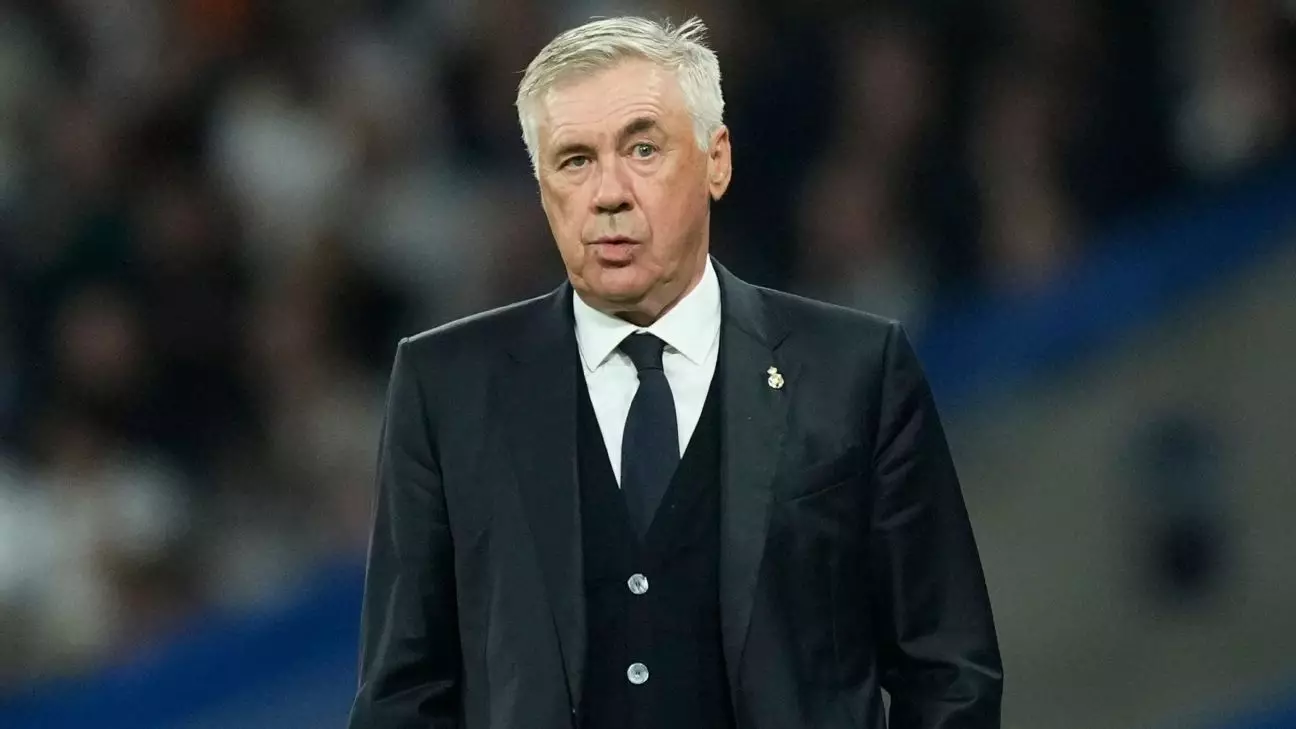Real Madrid, one of football’s most storied clubs, finds itself navigating stormy waters under the management of Carlo Ancelotti. This past week has been particularly tumultuous, characterized by a disheartening 5-2 defeat against Barcelona in the Spanish Supercopa. In the aftermath, Ancelotti’s reassurances about his standing within the club reflect a critical juncture not only for himself but for the entire Madrid squad.
Losing to Barcelona—a traditional rival—by such a staggering scoreline is more than just a setback; it can be a significant blow to morale. Ancelotti met with CEO José Ángel Sánchez to discuss the team’s ongoing struggles and the urgency of addressing persistent issues within the squad. Such meetings, while routine, indicate a deeper unease surrounding the team’s performance this season. Following their defeat, Madrid rebounded with a 5-2 victory against Celta Vigo in the Copa del Rey, yet this win was marred by a brief period in which they relinquished a 2-0 lead, creating palpable tension among supporters at the Santiago Bernabéu.
Despite facing criticism from fans, Ancelotti maintains a confident demeanor. He emphasizes the strong foundational relationships he shares with club president Florentino Pérez and Sánchez, asserting that his feeling of support has never wavered since taking the helm. However, Ancelotti also displays commendable self-awareness. He acknowledges the need for improvement and views the recent criticisms, including the whistles directed at him and his players, as fair responses to subpar performances. Ancelotti’s words hold significant weight: the responsibility for the team’s performance lies on his shoulders, a stance that reflects both accountability and professionalism.
Real Madrid’s disillusionment from recent matches contrasts sharply with its earlier success in the season, where they celebrated victories in both the UEFA Super Cup and the FIFA Intercontinental Cup. Their current standing in LaLiga—second place, just a point behind Atlético Madrid—indicates potential but is overshadowed by inconsistent performances. Ancelotti candidly admits that while the team has shown glimmers of brilliance, they have also faltered when matchplay intensity has mattered most.
Moreover, the question of transfers looms large as the January window opens. Reports suggest that the club is keen on acquiring Trent Alexander-Arnold from Liverpool, aimed at bolstering a squad that Ancelotti himself admits could use strengthening. However, he remains noncommittal about whether player acquisitions were discussed in his recent meetings—reflecting a prudent approach amidst the storm of criticism.
Amidst the chaos, one notable bright spot is the rising form of Kylian Mbappé, who has dazzled fans with extraordinary performances against both Barcelona and Celta Vigo. Ancelotti has commended Mbappé’s growing impact on the field, suggesting that his increased involvement could turn him into a pivotal figure for the club. The French star’s ability to elevate his game during crucial moments provides a potential catalyst for the team—as Ancelotti rightly points out, his attitude and play have become integral to their success.
Carlo Ancelotti stands at a crossroads with Real Madrid, balancing the weight of history and expectation against the challenging realities of modern football. The combination of recent defeats, the necessity of squad improvement, and the emergence of players like Kylian Mbappé intricately shapes his narrative. Moving forward, Ancelotti’s capacity to harness support from the board, learn from setbacks, and galvanize his players will define not only his tenure but potentially the future successes of Real Madrid. The resilience he portrays amid adversity is a testament to his managerial prowess and will be vital in returning the club to its esteemed winning ways.

